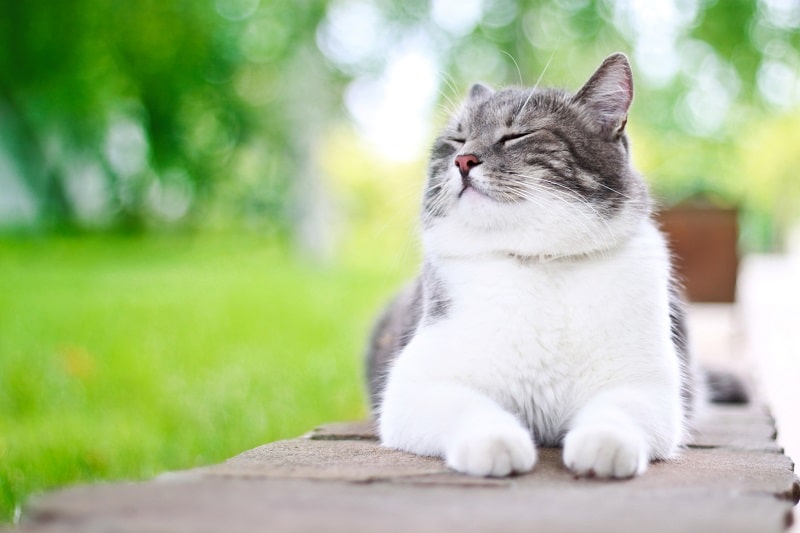For centuries, humans have adopted cats into their homes. While cats are great companions for a late-night movie binge, their brains cannot resist expressing their wild nature, especially when it comes to gorging their next meal.
The luckiest cats reside in homes. They can track and hunt down rodents, but that is not always the case for cats who live amid the racing lifestyle and living of humans. Their food usually includes a can of Salmon, yet the food is aplenty, resulting in cats becoming lazy and fat.
Although memes on the internet featuring fat cats appear humorous, the life of a fat cat is not good or comfortable. A majority of cats living in homes have an increased chance of becoming overweight or obese.
So, what is the difference between being overweight and being obese? A cat that is over its ideal weight is considered overweight. And when a cat is 15-20% over its ideal weight. For example, if your cat weighs 4.5 kg, then 6.5 kg is deemed to be obese. Gaining 2 kgs may be okay for humans, but not for a cat that is just 4.5 kg.
Since cats are of different sizes and weights, there is no standard ideal weight. Vets use a nine-point scoring system, also known as Body Condition Score, to evaluate a cat’s weight. A score of 4.5-5 indicates perfect weight, whereas a rating of nine suggests the cat is severely obese.
An obese cat experiences several health problems – including diabetes, arthritis, high blood pressure, and a decreased immune system. Thankfully for cats, according to researchers, we can solve the problem of obesity in ways and healthy living tips that can keep the cats entertained, active, and healthy.
Here are surprising ways to prevent your cat from obesity.
Food:
The food you feed your cat must provide complete nutrition to your cat. Avoid feeding kitten food to a senior cat. Senior cats can live better with a calorie-reduced diet that provides the nutrients with your cat needs. On the other hand, kittens need food that provides nutrition to help them grow.
No Free Feeding:
Making a bowl of dry food available to your cat to feed all day is known as free feeding or anytime feeding. Free feeding can contribute to the obesity of your cat. The cat can consume excessive food when fed in this way. Avoid free feeding.
Measured food:
Consult the vet, and based on your cat’s activity level and ideal weight, determine how much food the cat needs. Once you know how much food the cat needs, measure or weigh the food for each feed. Remember, your cat is small, and the portion that you offer may appear less to you, but a few extra food pellets can affect weight maintenance and weight gain.
Avoid surprise treats:
Suprise treats are good but use them only when necessary as rewards when training, or if you want your cat to undergo medication. Cooked vegetables are tasty treats for cats. Ask the vet about the best treats for your cat. Remember to lessen the regular food serving when you are offering more treats than usual.
Exercise:
Exercising is the best way to avoid obesity. Include physical activities in your cat’s day-to-day routine. Play with your cat for a few minutes every day. Exercises or playing helps burn calories, and relieves the cat from boredom and keeps the cat in healthy physical condition.
A healthy, playful cat is a treasure for years, apart from the above ways, ensure you feed protein-rich food, track weight, and have fun with your cat.

